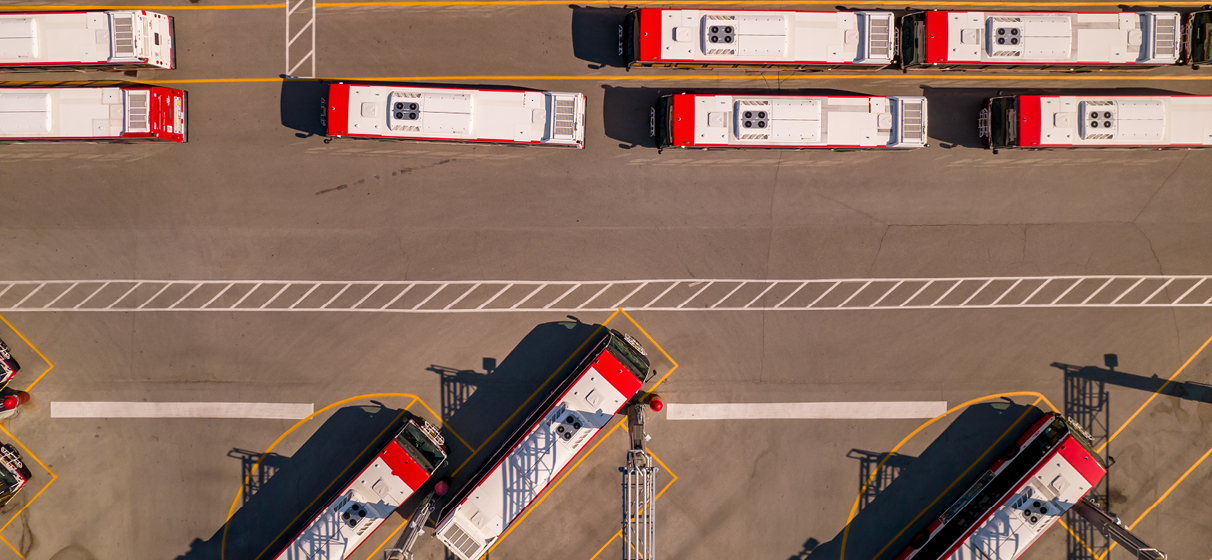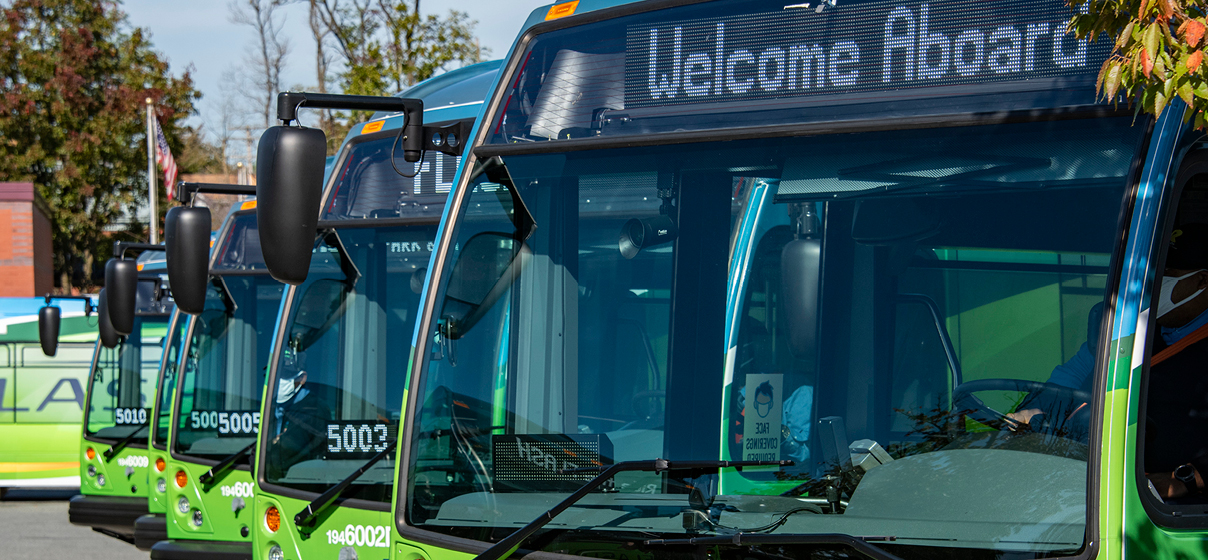In concert with widespread global efforts to decarbonize transportation systems and deploy zero-emission bus fleets in major cities, Canada’s Toronto Transit Commission (TTC) seeks to convert its entire vehicle fleet to zero emissions by 2040.
STV, with its decades of experience in vehicle procurement programs throughout North America, along with its cutting-edge tools that support the transition to zero-emissions technology, is playing a key role in TTC’s strategic zero-emissions transition plan that will serve as a roadmap for the electrification of the commission’s facilities and vehicle operations.
“TTC already has one of the largest fleets of electric buses in North America,” said Sam Hrvacic, vice president and senior engineering operations manager for STV’s national vehicles practice. “Our focus was to develop a comprehensive plan that addresses the agency’s operational and organizational needs throughout this transition while evaluating all three of their vehicle fleets for conversion to zero emissions.”
“The TTC Full Fleet Electrification Study was a challenging project that required frequent collaboration with the client and resulted in improved strategies and updates to STV’s modeling and analysis capabilities,” said Ron Hopkins, project manager and operations lead of the national rail and transit group at STV.
To help develop this plan, STV deployed its proprietary Performance and Evaluation of Electric Bus Routes (PEER) analysis route simulation tool to determine the daily energy needs of TTC’s current bus fleet. This custom software allows project teams to study various route factors and help clients achieve their zero-emissions and climate change goals.
“STV’s PEER analysis looks at a transit agency’s entire bus operation—all routes, blocks of work, schedules, vehicles and stops,” Hrvacic added. “For the TTC plan, we were able to predict approximate energy requirements for year-round bus operations for the agency’s entire system.”
As part of its services for preparing the transition plan, STV’s team has prepared market analysis and procurement schedules, while performing facility upgrades, assessment of maintenance needs and workforce training services. The firm also laid out funding and financing options, as well as alternative technology strategies such as fuel-cell electric buses and on-route charging system analysis. On-route bus chargers may play a crucial role in supporting the energy needs of current TTC vehicle routes.
Unique to TTC is its fleet of 250 Wheel-Trans paratransit and 800 non-revenue vehicles that support operations. Without any fixed-route schedule data, these vehicles required an alternate approach. The team analyzed vehicle telematics, including real-time location data and historical operating data, to develop a strategic fleet replacement.
“We developed heat maps and other interactive mapping tools, which allowed TTC to identify optimum storage locations and potential charging hubs for their non-revenue vehicles,” said Joseph Kruczynski, engineering specialist and the study’s project management supervisor.
The TTC zero-emissions transition plan dovetails the country’s major initiative to achieve net zero emissions by 2050. In April 2023, the agency received a $700 million ($515 million in U.S. dollars) investment from the Canadian government towards its zero-emissions goal, enabling the TTC to purchase 340 zero-emissions buses and 248 bus chargers. Over the next eight years, the Canadian government will invest $14.9 billion ($11.73 billion in U.S. dollars) for public transit projects.







